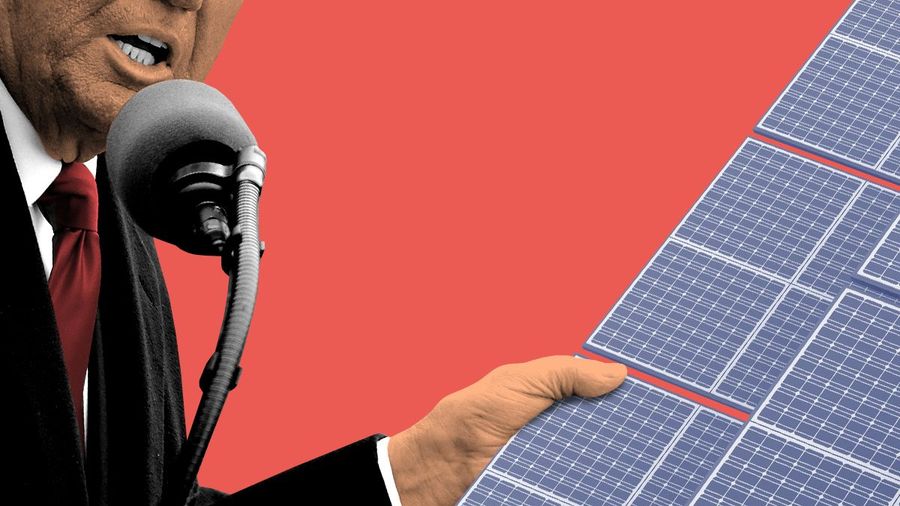Inside Heatmap’s Event on Climate Tech’s Next Winners
A report from Heatmap’s San Francisco Climate Week event with Tom Steyer.
Last Thursday at San Francisco Climate Week, Heatmap hosted an event with a lineup of industry leaders and experts to discuss the most promising up-and-coming climate tech innovations amidst a backdrop of tariff and tax credit uncertainty.
First up, Heatmap executive editor Robinson Meyer sat down with Tom Steyer, the billionaire investor and co-founder of Galvanize Climate Solutions, to explore the most promising climate technologies to scale. “No one's going to adopt new technologies to be nice,” Steyer noted. “They're gonna adopt new technologies because they're better, because they're a better deal, because they're cheaper or in some ways solve a pain point for the customer.” Steyer went on to emphasize that there is at least one “transformational and disruptive” idea for every six verticals in the climate industry — for example, measuring carbon sequestration in nature with machine learning andAI, a concept that was “literally unimaginable 5 years ago.”
As for the Trump-sized elephant in the room, Steyer encouraged climate tech startups to focus on “good leadership” as well as the willingness to adapt in this uncertain moment. “You’re gonna have hard times, and the world is going to change, and you’re going to have to figure out what to do,“ he said. Steyer also noted that all Americans, not only those working in climate tech, should understand the energy transition as a background condition of their careers. “If you want to be a screenwriter (...) be a screenwriter. But it’s really important that you put [the energy transition] into your screenwriting. If you‘re a banker (...) be a banker with an awareness of this issue. Bank the good stuff, not the bad stuff,” Steyer explained. He finished up the discussion with a remembrance of the late Pope Francis, a “tremendous human being for the planet.”

Also on Thursday was a lightning talk between Nico Lauricella, Heatmap’s CEO and editor in chief, and Sam D’Amico, the founder and CEO of Impulse Labs, which sponsored the event. D'Amico explained that in addition to being an induction stove, Impulse’s Cooktop is “a way to get battery storage into people's homes” — a “concept car” for using batteries in appliances to create a more decentralized grid. Lauricella and D’Amico also discussed the impacts of Trump’s tariffs on clean tech companies like Impulse, with D’Amico advising other founders in the room to build prototypes based on the supply chain and to make sure they have options in terms of where their products are manufactured so they can keep up with changing trade policies.

Lastly, Heatmap News staff writer Katie Brigham hosted a panel with Gabriel Kra, managing director and co-founder at Prelude Ventures, Clea Kolster, partner and head of science at Lowercarbon Capital, and Rajesh Swaminathan, partner at Khosla Ventures. The group spoke about the unique circumstances facing investors in the climate technology space, what their firms are looking for when investing in the newest climate innovations, and how AI fits into the picture.

All three panelists acknowledged that it’s a delicate time for clean tech investors and companies alike. “Volatility and uncertainty are the enemies of running and planning a business,” warned Kra. The true cost of the tariffs is therefore extremely high, Kra explained. Kolster agreed that things are generally gloomy in the investment space, but also highlighted the technologies that are currently thriving. Carbon removal, she pointed out, “is going better than ever. Contracts are being inked right now, in the past few weeks.” The companies and technologies she’s excited about, Kolster added, are building “cheaper, better, faster,” as Steyer pointed out earlier in the evening.
Swaminathan added that there will always be a certain element of risk when it comes to investing in emerging technologies. “Clean tech companies have so many single points of failure,” he said. “And you have to prop up each part with the right leadership team. You have to have strong pillars so that [your company] doesn’t break.”


Sean Vranizan

Sean Vranizan

Sean Vranizan

Sean Vranizan

Sean Vranizan

Guests at SFCW
Sean Vranizan
Thank you to our presenting sponsor, Impulse, as well as our supporting sponsor, V2 Communications, and our event host, IndieBio.
You’re out of free articles.
Log in
To continue reading, log in to your account.
Create a Free Account
To unlock more free articles, please create a free account.

 A view of Punta Gorda, Florida, in 2024 after Hurricane Milton.Joe Raedle/Getty Images
A view of Punta Gorda, Florida, in 2024 after Hurricane Milton.Joe Raedle/Getty Images Pablo Blazquez Dominguez/Getty Images
Pablo Blazquez Dominguez/Getty Images
